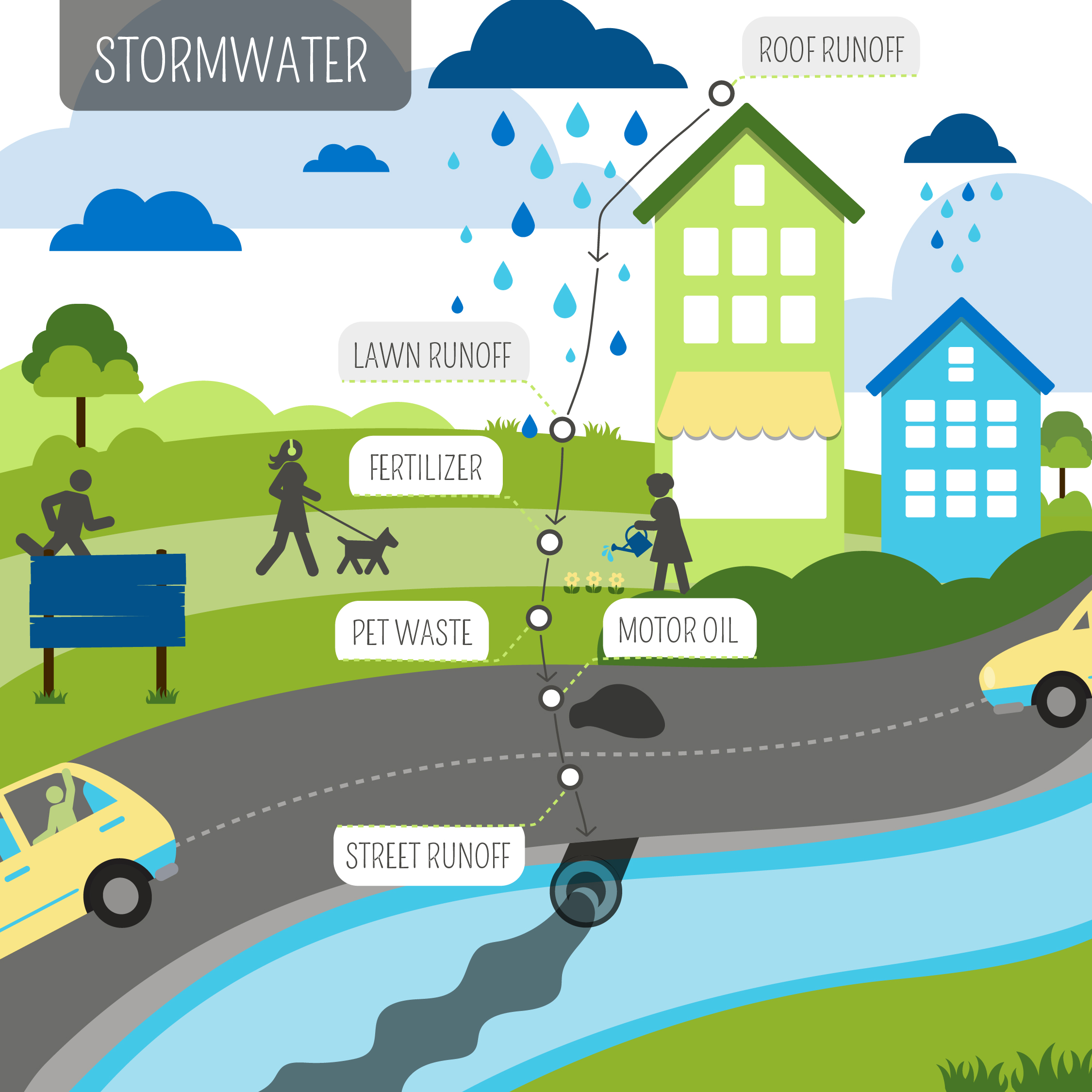Reducing Stormwater Costs (’16)
Abstract:
Stormwater is a major cause of pollution for waterbodies in Massachusetts. The EPA has drafted new regulations with additional requirements to further reduce stormwater pollution. The implementation of these requirements will increase costs associated with stormwater management. The goal of this project was to assist small to mid-size communities in Massachusetts with fulfilling the EPA’s new requirements for stormwater management. To accomplish this goal, we gathered information and conducted case studies to determine resource needs and current stormwater management programs for two Massachusetts towns. We compared these data to the requirements in the new regulations in order to develop a set of recommendations that communities can use as guidelines for reducing costs for implementation.

Retrieved from http://northgeorgiawater.org/wp-content/uploads/2015/05/ARC-Stormwater-v1-01.jpg
Our Goal: In order to complete our goal of developing a set of recommendations that small to mid-size communities can use to meet the new requirements within the six minimum control measures in the new MS4 permit, we completed the following objectives:
- Objective 1: Examined Wellesley, MA, and Grafton, MA, to illustrate their current status, motivations, available and required resources, and needs to meet the MS4 requirements.
- Objective 2: Identified usage of resources for meeting the MS4 Permit requirements for different communities.
- Objective 3: Analyzed and summarized current information and guidelines in relation to resources and needs for towns.
- Objective 4: Provided recommendations on cost-saving measures that communities can utilize in permit compliance.
Our Findings:
- Finding 1: Many communities have difficulties with labor and time requirements for stormwater management.
- Finding 2: Good Housekeeping is the control measure with the highest expected cost in the new permit.
- Finding 3: The cost allocation for Illicit Discharge Detection and Elimination cannot be accurately determined in advance due to the possibility of severe illicit discharges.
- Finding 4: Stormwater coalitions are beneficial for aiding communities in meeting regulation requirements.
- Finding 5: Towns can use additional sources for funding to implement stormwater requirements.
- Finding 6: Communities do not fully understand the new MS4 permit and therefore cannot finalize their budgets.
- Finding 7: Member communities within a stormwater coalition normally develop individual educational outreach materials, when these materials are already available.
- Finding 8: The MassDEP’s Stormwater Handbook is inconsistent with the EPA’s new MS4 Permit, causing confusion within communities.
Our Recommendations:
- Recommendation 1: Communities should assess internal staffing needs for the increase in new requirements.
- Recommendation 2: Communities should allocate enough funding for Good Housekeeping, which can exceed half of the budget for stormwater management.
- Recommendation 3: Communities requiring additional assistance with stormwater management should join a coalition or collaborative if not involved in one.
- Recommendation 4: Communities that are struggling to finance implementations for the current requirements should consider
alternative methods of funding for the new permit, such as stormwater utilities or grants. - Recommendation 5: The MassDEP should update the Stormwater Handbook for the new MS4 Permits to further assist communities with meeting regulations.
- Recommendation 6: Stormwater coalitions should compile their educational outreach materials and unify them in order to save resources.




